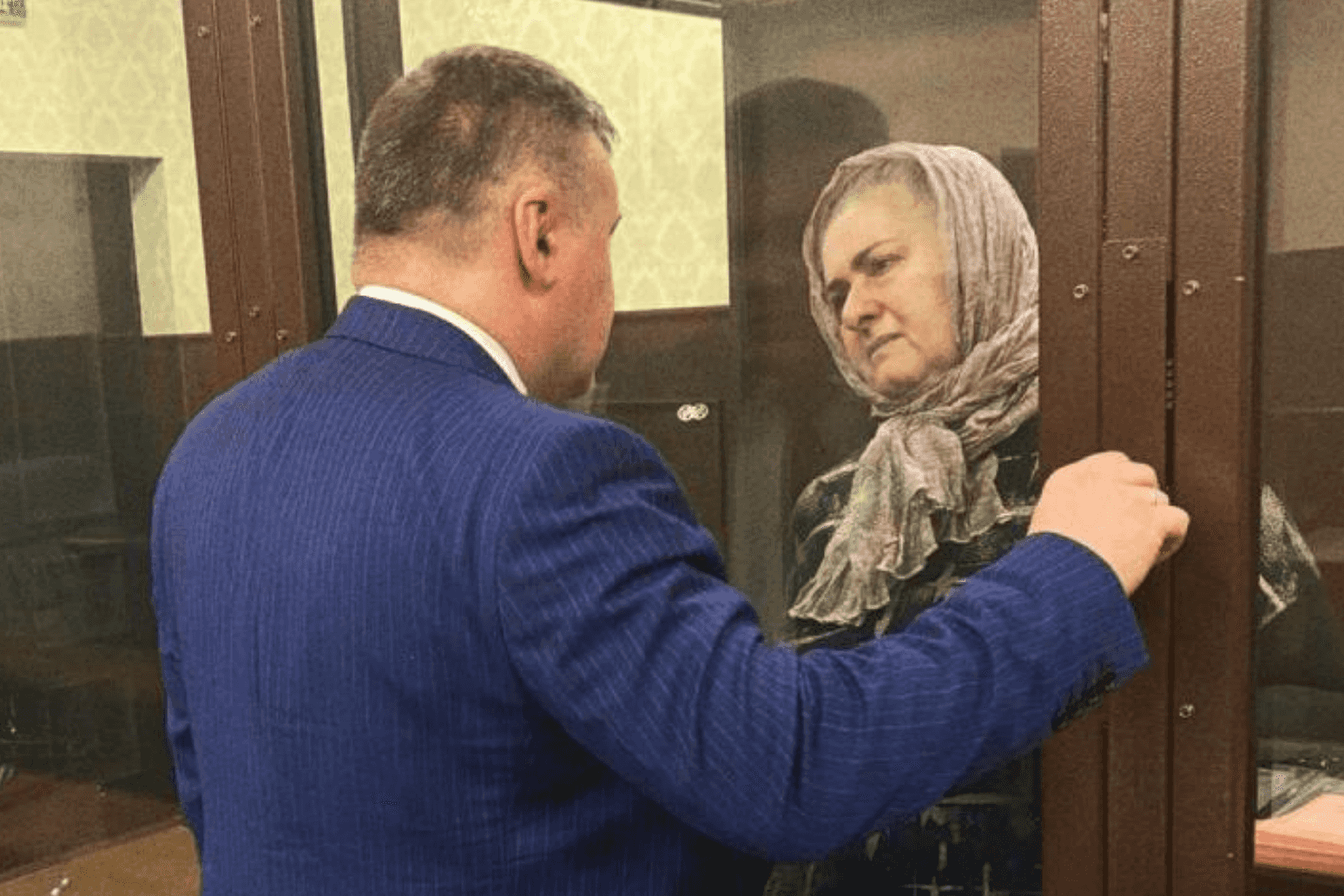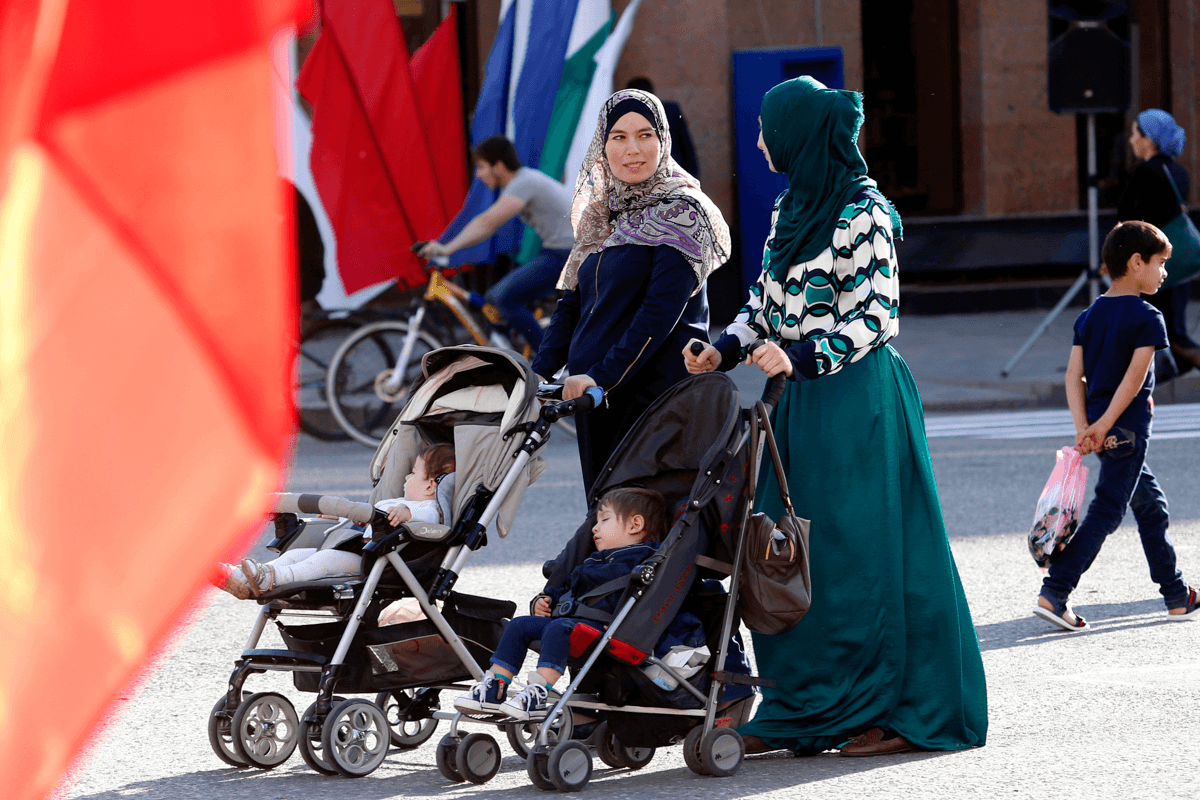
Apti Alaudinov, commander of the Chechen Akhmat special forces unit, has criticised residents of Russia’s Kursk Oblast for the second time this week. Alaudinov accused activists demanding the opening of a ’green corridor’ to allow citizens to relocate from territories occupied by the Armed Forces of Ukraine (AFU) of working for Ukraine.
Aluadinov’s latest criticism was in response to a protest announced by activist Lyubov Antipina at a local World War II monument to commemorate the six-month anniversary of the beginning of Ukraine’s incursion into Kursk Oblast.
Participants of the demonstration demanded the removal of Russian civilians from Kursk’s Sudzhansky district, the site of heavy ongoing fighting. Many of those gathered, including Antipina, said their elderly parents remain in areas of the region that are under Ukrainian occupation.
In total, activists said that around 3,000 civilians remain in areas controlled by Ukraine. The true tally is unknown, as Russia has not publicly stated how many of its citizens remain in the area.
In turn, Alaudinov said he had ’talked to a huge number of people’ and claimed ’a certain man and woman’ who prepared the 6 February action were ’not working for Russia’. He viewed the protest as evidence that the participants were ‘working for the enemy’ and said that the residents who publicised the event ’received a command from abroad’ and then they ’do their job’.
Most likely, Alaudinov was talking about local residents Tatyana Mozgovaya and Vladimir Sinelnikov. Mozgovaya told Sekunda that a similar protest was held on 27 January, the same day as a holiday commemorating the ending of the Siege of Leningrad in World War II, and that her husband remains in Sudzha, which is still under Ukrainian control. Sinelnikov maintains a Telegram channel in which he collects lists of Russian citizens remaining in the territory occupied by the AFU.
‘You see, they care so much about the civilians who stayed there. So I have a question: if you worry so much, why do you coordinate all this with the Ukrainian side, why do you coordinate this with Oleksii [Dmytrashkivskyi, a Ukrainian press officer in Kursk Oblast]. [I want] people who are going to be taken to some kind of [protest], a-la-rally, to think about who is gathering them, what is [their] goal, and what they want to get out of it’, Alaudinov said.
Earlier, Antipina accused the pro-government Telegram channel Rybar of distorting the coverage of the situation in Kursk Oblast.
’Don’t you dare lie to people about the fact that there are not thousands of peaceful Russians in Sudzha. I don’t know who ordered [you to share such messages], but it will not be possible for them or you or your kind to silence the scale of this tragedy’, Antipina wrote on her VKontakte page.
In the post, Antipina referenced two Rybar posts from earlier in February. In the first of them, Rybar rejected reports about a Russian airstrike on a school in Sudzha, in which 95 people were reportedly buried in the rubble of the building, instead saying that it was unlikely so many residents remained in one building. In the second the author tried to demonstrate that the estimate of 3,000 people remaining in Sudzha was ’greatly overstated’.
A few days ago, Alaudinov criticised complaints by residents of the region about the lack of assistance from the authorities in an interview with a local publication in Kursk Oblast. He compared the situation of those evacuated from areas occupied by the AFU to the hardships of Chechnya’s residents during the Chechen wars. Unlike those years, the entire country provides aid to the victims, he said. Alaudinov also urged the male complainants to join the Russian army.
The AFU began its incursion into Russia’s Kursk Oblast on 6 August. Although the Russian army has since counterattacked and recaptured significant swathes of territory, the AFU still claims control over dozens of settlements, including the district centre of Sudzha. Russian authorities have largely not commented on the ongoing fighting.
According to official data, more than 133,000 people have fled their homes in the Sudzhansky, Glushkovsky, and Korenevsky districts, where the fighting is taking place, as well as in a number of other border districts in the Kursk Oblast. Displaced Kursk residents have complained of problems with accommodation and receiving benefits from the government, and there have also been cases of looting in settlements not under AFU control.











